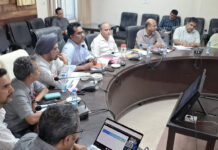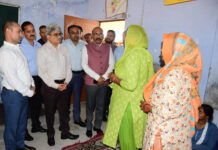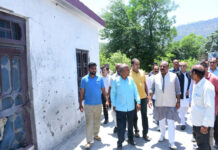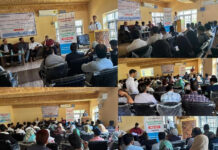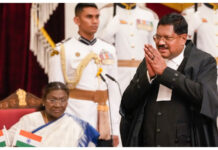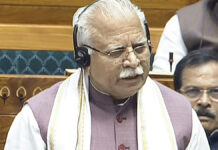In a landmark move, the 2024 Lok Sabha elections in the Union Territory of Jammu and Kashmir have introduced a groundbreaking provision: voting from home for the elderly and Persons with Disabilities (PwDs). This initiative, which allows citizens above 85 years of age and PwDs meeting the 40 percent benchmark disability criteria to cast their votes from the comfort of their homes, is a momentous leap forward in the journey towards a more inclusive and accessible electoral process. The implementation of this initiative has already commenced with these eligible groups exercising their voting rights during the initial phases of polling. By extending this optional facility, the Election Commission of India (ECI) has demonstrated its unwavering commitment to ensuring that no citizen is left behind in the democratic process. This move is particularly significant as it addresses the longstanding challenges faced by elderly citizens and PwDs in participating in elections. Physical barriers and logistical constraints often prevent these individuals from exercising their constitutional right to vote. By facilitating voting from home, the ECI has not only removed these barriers but has also sent a powerful message of inclusivity and empowerment to these marginalized communities. The decision to extend this privilege to citizens above 85 years of age and PwDs meeting the 40 percent benchmark disability criteria reflects a thoughtful approach to accommodating the diverse needs of voters. It acknowledges the unique challenges faced by these groups and seeks to provide them with the necessary support to engage meaningfully in the electoral process. Moreover, this initiative marks a significant step forward in promoting electoral participation among underrepresented segments of society. By ensuring that elderly citizens and PwDs are not disenfranchised due to their physical limitations, the ECI is upholding the fundamental principles of democracy and reinforcing the idea that every vote counts. As we celebrate this historic milestone, it is essential to recognize the collective efforts of all stakeholders involved in making this initiative a reality. From policymakers and election officials to civil society organizations and advocacy groups, their collaboration and dedication have been instrumental in bringing about positive change. Moving forward, it is imperative to build on this momentum and continue striving towards a more inclusive electoral system. This requires ongoing efforts to identify and address the barriers that prevent certain groups from exercising their voting rights fully. By fostering a culture of inclusivity and accessibility, we can ensure that democracy truly reflects the will of all citizens. The introduction of voting from home in the 2024 Lok Sabha elections is a historic milestone that reaffirms India’s commitment to inclusive democracy. By empowering elderly citizens and PwDs to participate fully in the electoral process, we are not only upholding their rights but also enriching our democracy. This initiative serves as a beacon of hope and progress, inspiring us to strive for a future where every voice is heard and every vote matters.

Dogra Herald is the media of J & K, breaking language and geographical barriers, connecting J & K to the rest of India.
0191 245 4946
info@dograherald.com
Latest articles
Crime Branch arrests fraudster in fake appointment case
iamjkstarr - 0
JAMMU: In the fake appointment racket case, Crime Branch Jammu has arrested the notorious fraudster who was not cooperating in the investigation...
Mamata pays tribute to soldiers on Kargil war anniversary
iamjkstarr - 0
West Bengal Chief Minister Mamata Banerjee on Friday paid her tribute to soldiers who had laid down their lives during the Kargil war in...
Mir calls on AICC J&K Incharge, discusses organizational affairs
iamjkstarr - 0
The Jammu and Kashmir Pradesh Congress Committee (JKPCC) President G A Mir on Tuesday called on senior party leader and newly appointed AICC J&K...


